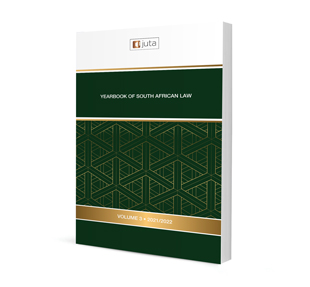Administrative Law

Administrative Law
Author Helena van Coller
ISBN: 978 148514 016 0
Affiliations: LLB LLM (UFS) LLM (Utrecht) LLD (UJ) PGDHE (Rhodes); Professor, Faculty of Law, Rhodes University, Makhanda (Grahamstown)
Source: Yearbook of South African Law, Volume 3, p. 76 – 104